Since undergraduate, my interest has focused on the application of technology to improve the human condition. Every one of the world’s 7.7 billion people needs healthcare. The challenges presented by the aims of providing higher quality, more efficient and accessible care offer rich, engaging opportunities for teaching, research and entrepreneurship.
Hardware Development to Support MEG Brain Imaging Studies
Working with Sumitomo Heavy Industries, Japan we are developing tools to provide audio and visual stimuli to test subjects inside a MEG (magnetoencephalography) machine. Unlike traditional MEG machines, this SHI’s system does not require a fully electromagnetically shielded room, rather the machine places the subject inside a tight, shielded tube, which requires all new hardware to be designed to insert/remove the subject and interact with them in order to conduct clinical studies.
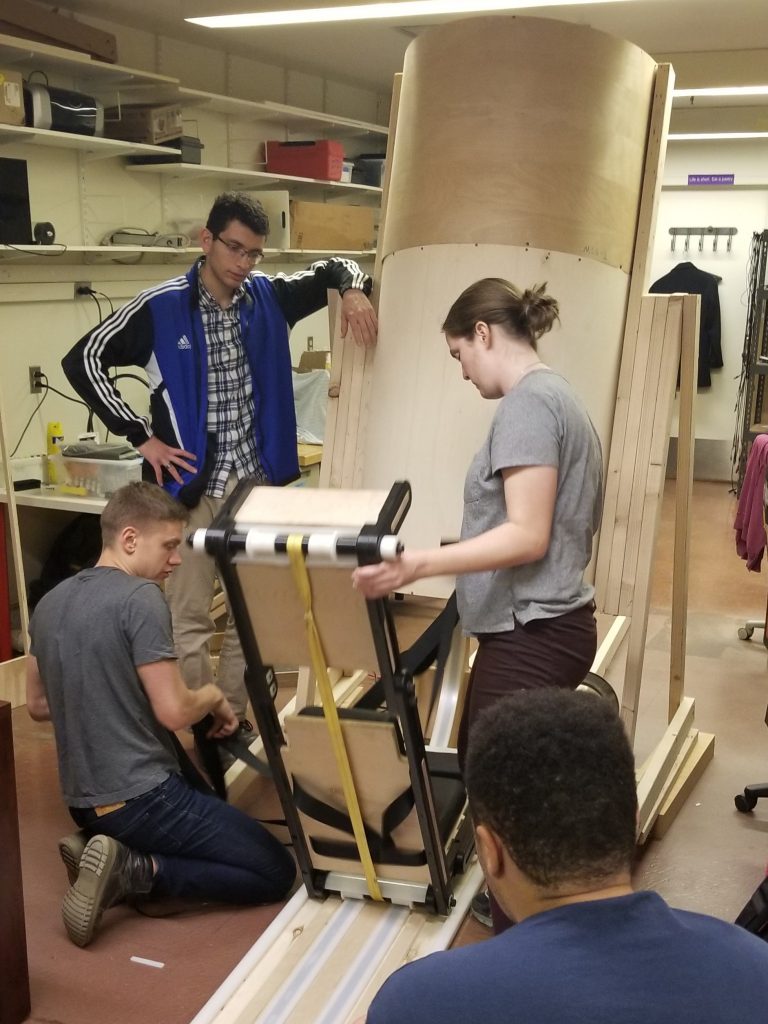
sliding chair to position subjects inside MEG 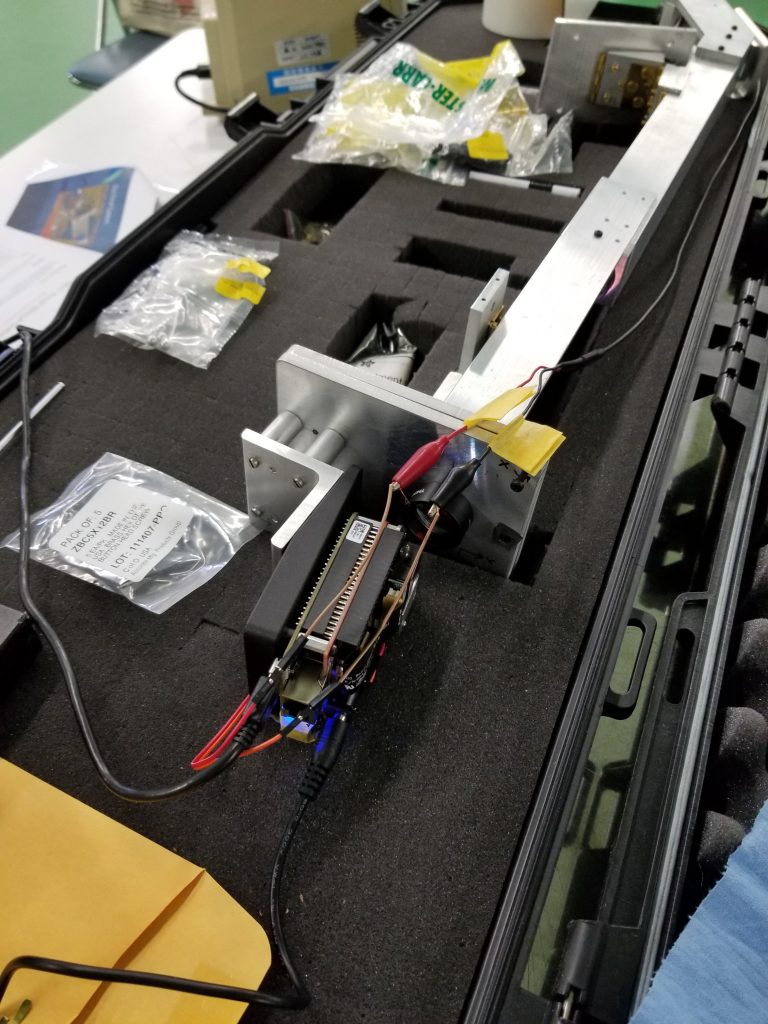
projector to display visual input inside MEG 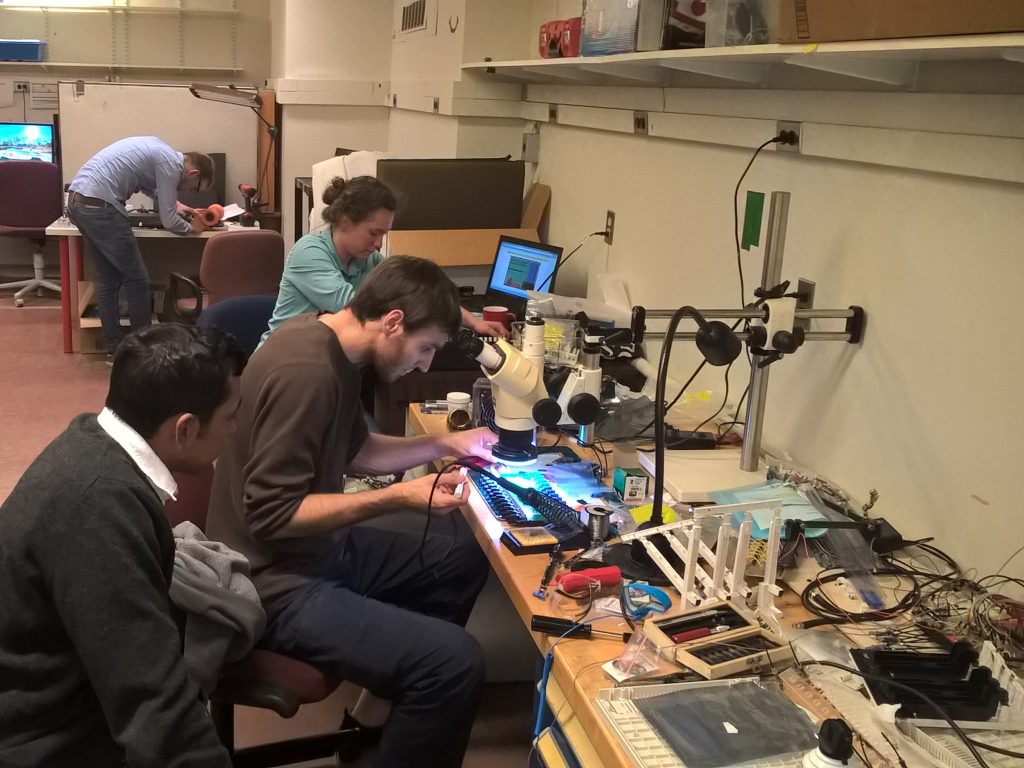
MEG compatible piano team working 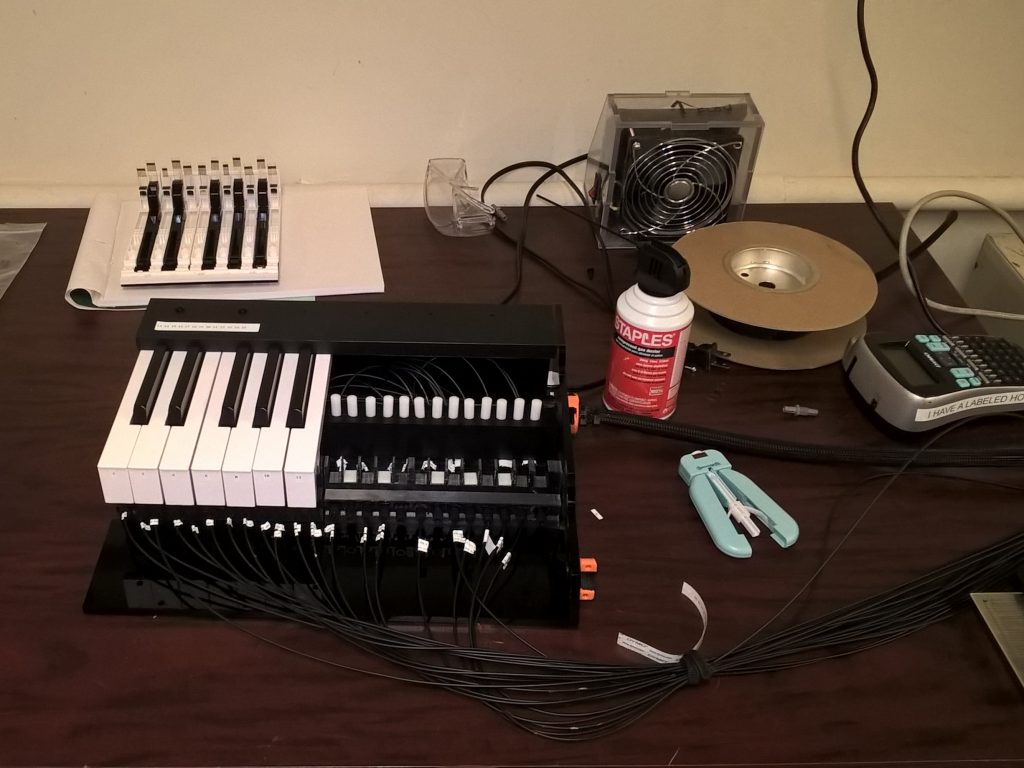
open MEG compatible piano showing custom fiber optics and sensors 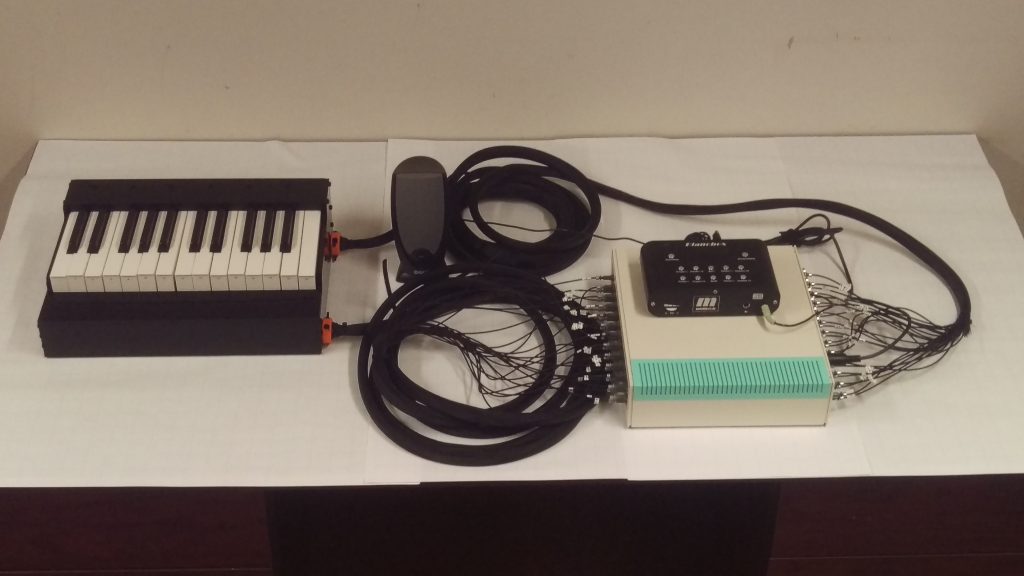
MEG compatible piano
Improving Surgeon’s Ergonomics
Improving surgeons’ ergonomics in the operating room to decrease fatigue and risk of injury. The physiological risks faced by medical professionals are often minimized, but awareness is increasing along with a concern regarding their effects on the care provided to patients. Two Master’s thesis supervised in collaboration with TU Delft, Netherlands. A new collaboration is starting with the STRATUS Center for Medical Simulation, Brigham and Women’s Hospital to prototype surgeons’ stress monitoring technologies.
Non-invasive Diagnostics
Multi-wavelength imaging of the Tympanic Membrane and middle ear to improve diagnostic accuracy for middle ear infection (otitis media), with the goal of enabling clinicians to more judiciously prescribe antibiotics. An MS thesis project is commencing Spring 2019, with the option to file IP around the technology.
